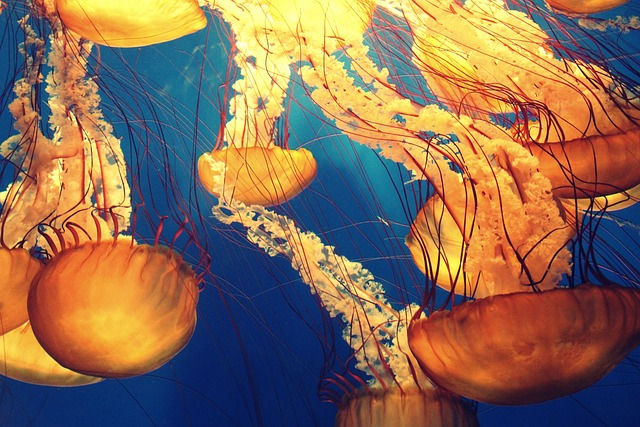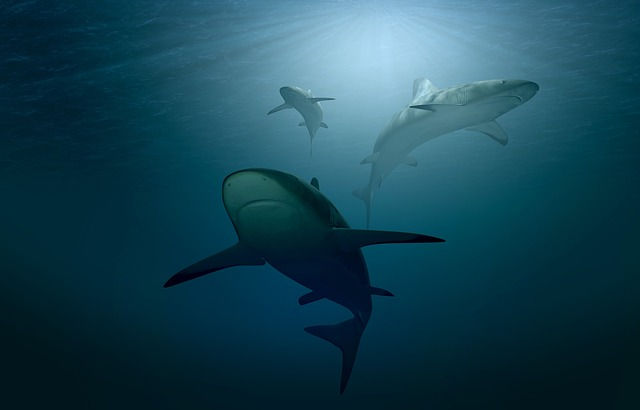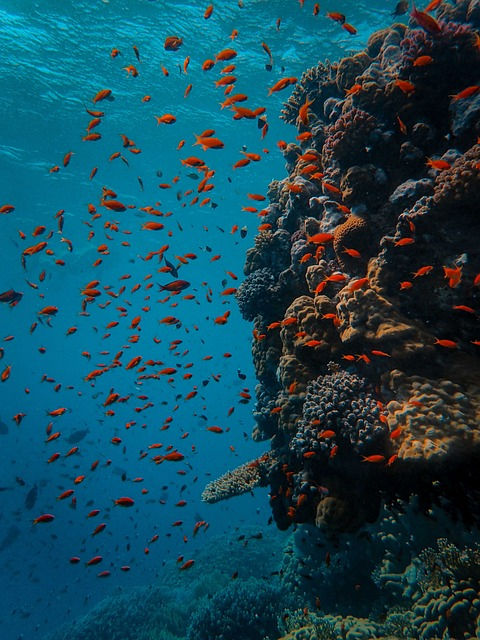9 marine conservation organisations to follow in 2024
- EcoOceanEscapes

- Jan 5, 2024
- 6 min read
Updated: Jun 4, 2024
Our oceans are a life force on this planet, yet they face grave threats that demand action. While governments drag their feet, dedicated nonprofits are leading the charge to protect marine environments. As divers, we share a special bond with the underwater world and have an obligation to step up when pollution, overfishing and waste are degrading once-vibrant reefs.
The good news is, there are plenty of conservation groups with a marine focus that you can support through monetary donations or hands-on participation. These nonprofits work tirelessly to safeguard oceans on both public and political fronts while providing passionate citizens with the knowledge to make impactful decisions.
Read on to discover 9 marine conservation organisations to follow in 2024 and help make our oceans healthier environments for wildlife.

Oceana
Oceana is the largest organisation in the world solely devoted to marine conservation. Since its founding in 2001 by The Pew Charitable Trusts (and other philanthropic foundations), Oceana has achieved hundreds of concrete policy victories for marine life and habitats.
These include tackling major sources of ocean pollution like oil spills, mercury contamination, aquaculture runoff and shipping emissions. In doing so, they are helping to protect vulnerable marine ecosystems in the Arctic, the Aleutian Islands and the Mediterranean Sea.
With an impressive track record spanning two decades, Oceana continues to lead the charge in preserving our blue planet's biodiversity and natural beauty through science-based advocacy, policy and public education. There's still much work to be done, but Oceana campaigns have made the oceans a little cleaner and safer for all their inhabitants.
Want to plan a sustainable surf vacation? Check out 16 of the world's best eco-friendly surf resorts
World Wildlife Fund
Since its founding in 1961, the World Wildlife Fund has been working in the field of wilderness preservation, safeguarding natural habitats and reducing the harmful effects of human activity. This conservation juggernaut has rallied over 6 million members across 100 countries to join their crusade, which includes initiatives to save our seas and coastlines.
Their top marine priorities? Working with fisherfolk worldwide to set sustainability standards, protecting the Arctic's fragile ecosystems from the fallout of climate change. They are also on a mission to expand mangroves by 20% before 2030 - an ambitious goal to stabilise our coasts.
WWF takes a 360-degree approach - acting locally and globally to deliver innovative solutions that benefit both people and nature. Through their blending of science and activism, the organisation is making a huge difference and giving our planet’s natural ecosystems a fighting chance of survival.

Olive Ridley Project
Despite being the smallest sea turtle, the olive ridley plays a big role in ocean ecosystems. These little green turtles, which grow to just over two feet long, migrate thousands of miles across the seas. Though abundant, they face serious threats - primarily from ghost nets. These discarded fishing nets drift through the oceans like ghosts, ensnaring turtles and other animals along the way. While some animals are injured by the nets, others drown.
To combat this problem, the Olive Ridley Project conducts education and outreach programs that increase awareness among fishermen about properly disposing of old nets. They also take direct action, physically removing ghost nets from the water. Their goal is to reduce the threat of ghost nets in the Indian Ocean to an undetectable level and help save olive ridley turtles from demise.
Want to surf one of the Philippines' most idyllic islands? Check out these 5 sustainable resorts and hotels in Siargao
HEPCA
For 20 years, the Hurghada Environmental Protection and Conservation Association (HEPCA) has been a champion of the Red Sea's fragile ecosystem. This non-profit organisation actively protects the ocean by mobilising communities, conducting research and launching conservation projects. Their most visible contribution? The ubiquitous red trash cans found throughout Hurghada, which help mitigate the area's major waste problem.
But HEPCA's impact extends well beyond trash collection. They work closely with the Egyptian government to implement sustainable tourism practices and amend environmental policies. To date, their advocacy has led to 32 new or revised laws that protect the Red Sea. In addition, the HEPCA Mooring Team installs safe anchors at popular dive sites to prevent coral damage.
Through community development initiatives and education, the HEPCA encourages sustainability among Hurghada residents. Over the last two decades, this dedicated team has admirably worked towards preserving the Red Sea's natural splendour through hands-on conservation and hard work.
For an eco-friendly Central American vacation, check out these 5 sustainable surf camps in Costa Rica
Marine Megafauna Foundation
Divers dream of stunning encounters with giants of the deep - whale sharks, manta rays and other marine megafauna. To protect these magnificent creatures, the Marine Megafauna Foundation (MMF) was formed in 2003. Their mission: research, protect and conserve sharks, rays, marine mammals and turtles along the Mozambican coast and beyond.
As the name suggests, the MMF focuses specifically on marine megafauna. These long-lived, slow-reproducing animals are vital components of ocean ecosystems. But they are often the first affected by human pressures. Fortunately, their charisma generates public interest when it comes to conservation, making them useful ambassadors for the marine environment.
While fisheries around the globe have decimated marine megafauna populations, Mozambique is a hotspot where whale sharks, manta rays and other threatened species thrive. The MMF aims to conduct research to directly aid the conservation of these species as far afield as Ecuador, Mexico, Belize, Myanmar, Indonesia, Qatar, Tanzania and Brazil.

Coral Reef Alliance
When Stephen Colwell founded the Coral Reef Alliance (CRA) in 1994, he aimed to engage divers in protecting our vibrant underwater worlds. What began as a grassroots effort in Berkeley has blossomed into a global mission to unite communities around coral conservation.
Rather than taking a one-size-fits-all approach, the Coral Reef Alliance collaborates closely with fishermen, government leaders, divers and scientists to develop tailored solutions that boost the health of reefs. Their work in Fiji, Hawaii, Indonesia and Central America has sparked a ripple effect of reef restoration around the globe.
Today, the CRA is on a mission to reduce local threats like overfishing, pollution and coastal development while empowering communities to benefit socially, culturally and economically from conservation. They work tirelessly to improve reef management systems and partner with tourism operators to reduce environmental impacts.
Discover some of the world's top surf destinations in The Ultimate Guide to World Surfing Reserves
Ocean Conservancy
When it comes to protecting the big blue, the Ocean Conservancy is doing its part. Since 1972, this U.S.-based organisation has gone by many names - from Delta Conservancy to Center for Environmental Education - but its mission remains crystal clear. They're on a quest to save our seas through public education and policy change.
One of their most famous efforts? The International Coastal Cleanup. Every year, millions of volunteers across the globe band together to pick up trash and record what they find on beaches. It's an inspiring display of people power that is making a considerable difference and something that you can easily become a part of.
By reaching out to communities and governments, the Ocean Conservancy is creating a meaningful impact. They restore sustainable fisheries, protect fragile underwater habitats and reduce human harm to marine ecosystems. Thanks to their pioneering work, vibrant ocean wildlife has a fighting chance.

Project AWARE Foundation
Founded by PADI in 1989, the Project AWARE Foundation is on a mission to protect our oceans through hands-on conservation programs. This global organisation empowers scuba divers to take action as citizen scientists, collecting vital data and removing trash from the seafloor.
The Dive Against Debris program, engaging over 100,000 divers across 117 countries, has created the largest underwater cleanup effort on the planet, providing powerful insights for policy change. In 2021, the Foundation rallied divers worldwide to advocate for the protection of vulnerable mako sharks. Their collective voice led to a historic ban on catching these imperilled creatures.
The Foundation also empowers local communities through grants and supports the creation of marine protected areas. Their Adopt the Blue program allows anyone to “adopt” and protect endangered marine species and habitats around the globe, ensuring everyone can help build an abundant ocean planet.
The Nature Conservancy
Since 1951, The Nature Conservancy has been a leading voice for our planet's lands and waters, making it one of the best marine conservation organisations to follow in 2024. Over one million members strong, this respected organisation takes action at a global scale to protect the diversity of life on Earth.
When it comes to marine conservation, The Nature Conservancy has made a positive impact through over 100 projects worldwide. These include mapping the wealth of the oceans to inform decision-makers, revitalising coral reefs and fish habitats, and safeguarding coastlines.
For over 70 years, The Nature Conservancy has pursued lasting solutions for both people and nature, enabling sustainable fisheries and ocean ecosystems to thrive. Their innovative, science-based approach gives hope that magnificent marine life and habitats will flourish for generations to come.